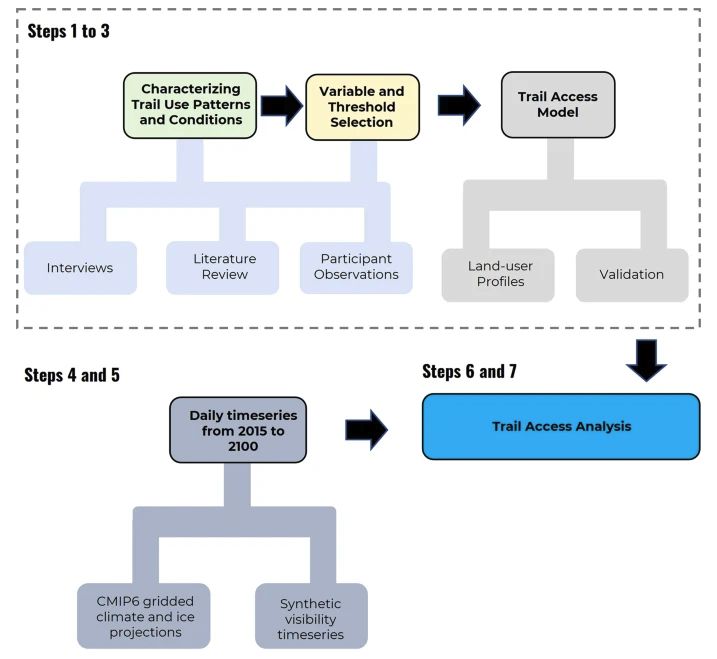Update by: Marina Fernandes Barbosa da Silva
Congratulations to James Ford, Sherilee Harper, and members of the IHACC Research Team for their recent article, “Projected decrease in trail access in the Arctic”, published in Communications Earth & Environment.
The article projects how climate change will affect access to semi-permanent trails on land, water, and sea ice in Inuit Nunangat (the Inuit homeland in Canada) this century. Trails are essential for people to travel for hunting, trapping, and fishing, and altered access will impact Inuit livelihoods and culture. The results of the study allow us to better understand how temperature, precipitation, wind speed, and other climate variables will impact trail conditions, and these findings provide insight into the potential consequences for Arctic communities, taking into consideration factors such as risk tolerance and skill level. This study brings together local knowledge and climate change modelling to develop a comprehensive understanding of how climate change could disrupt Arctic transport networks. The study further highlights the need to consider adaptation opportunities. Study results can be further explored through the Arctic Trail Modelling Platform, accessible here.
Click here to access the publication.
Figure 8 from Ford et al., (2023) shows how the authors developed the trail access projections using a 7-step ethnoclimatological modeling framework that connected trail users’ local knowledge and CMIP6 global climate simulations.
CITATION
Ford, J.D., Clark, D.G., Copland, L. et al. Projected decrease in trail access in the Arctic. Commun Earth Environ 4, 23 (2023). https://doi.org/10.1038/s43247-023-00685-w

